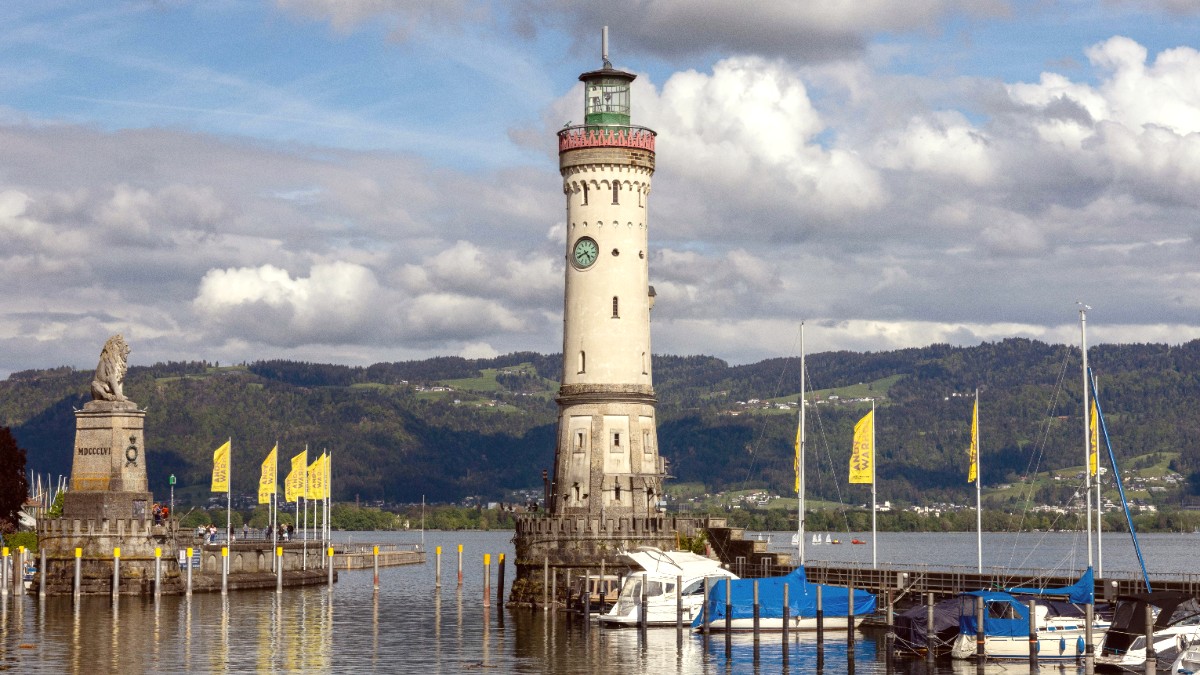
Germany
Lake Constance cuisine is shaped by its unique location bordering Germany, Switzerland, and Austria, plus proximity to Swabian Alps and Black Forest. This confluence results in a diverse and hearty food culture.
Strong emphasis on fresh lake fish, locally grown fruits (apples, pears, plums, cherries), and fresh vegetables. Dairy products from regional dairies also feature prominently.
Lake Constance is famous for fresh fish. Species include Felchen (whitefish), Zander (pike-perch), and Perch (Barsch). These are often prepared simply to highlight natural flavor.
The Bodensee region is a major fruit-growing area (apples, pears). Seasonal vegetables are common. Asparagus (Spargel) is a major highlight in spring, and potatoes and various cabbages are staples.
Cheeses from regional dairies feature prominently. Cuisine is often savory, utilizing butter, cream, and fresh herbs like parsley and chives. Sweet dishes prominently feature the region's abundant fruits.
This is the region's culinary star. It is often served "Müllerin Art" (pan-fried with butter, parsley, and lemon) or smoked.
Find this fresh lake fish in most lakeside restaurants specializing in local cuisine.
A German equivalent of "mac and cheese." These soft, chewy egg noodles are mixed with melted cheese (often Emmentaler or Bergkäse) and topped with crispy fried onions.
A hearty Swabian specialty, found in traditional restaurants.
Often called "German ravioli." These pasta pockets are typically filled with minced meat, spinach, and bread crumbs.
They can be served in a clear broth, pan-fried with onions, or with a side salad. A regional comfort food.
A popular German street food consisting of grilled sausage smothered in a spiced curry ketchup sauce, typically served with fries.
A classic grilled sausage, often served in a bun with mustard. Easy to find at Imbiss (snack) stands.
Several upscale restaurants, notably in Konstanz, Lindau, and lakeside hotels, offer gourmet cuisine. These establishments often focus on regional ingredients presented with innovative flair.
Most towns feature a good selection of traditional German restaurants (Gasthaus/Gasthof) serving local specialties. These establishments present a comfortable dining experience.
For quick, cheap, and convenient options.
Local weekly markets (Wochenmarkt) in towns like Konstanz and Radolfzell feature fresh produce, cheese, and prepared foods.
These places are for sampling local products.
In larger towns, you will find a range of international restaurants, including Italian, Greek, Turkish, and various Asian cuisines (Chinese, Thai, Vietnamese).
Wide selection.
Increasingly common. Many traditional dishes adapt or are naturally vegetarian (e.g., Käsespätzle).
More challenging but growing, especially in larger cities like Konstanz, which has dedicated vegan restaurants.
Online translation tools, apps like HappyCow, or a German dietary translation card are useful.
Awareness of gluten-free options is growing. Communicate clearly, and supermarkets have options.
Many restaurants feature terraces directly on the lake, giving stunning views with your meal.
Enjoy the scenery.
These are seasonal, temporary taverns operated by winemakers, serving simple, rustic food with their own wine.
An authentic local experience, check operating times.
German Side: Aligned with Swabian cuisine, featuring Spätzle and Maultaschen. Swiss Side: Incorporates more cheese-heavy dishes and Rosti. Austrian Side: Influences include Wiener Schnitzel and Apfelstrudel.
Obatzda (spicy cheese spread), Pretzels (Brezel), Fruit Tarts/Cakes (Obstkuchen), Schwarzwälder Kirschtorte (Black Forest Cherry Cake).
Vegetarian: Increasingly common. Many traditional German dishes adapt or are naturally vegetarian. Vegan: More challenging but growing, especially in larger cities like Konstanz.
Awareness of gluten-free and other dietary restrictions is growing. Larger restaurants may accommodate needs.
Online translation tools like Google Translate are useful for dietary requirements.
It is best to communicate clearly with restaurant staff about your needs.
A written note in German helps.
Supermarkets offer a range of gluten-free products and other specific dietary items.
Suitable for self-catering needs.
Some private culinary schools or specialized tour operators may offer German or regional cooking classes.
Many fruit farms (Obsthöfe) and wineries (Weingüter) around the lake offer farm shops, tours, and tastings.
Bodensee Weinfeste (Wine Festivals) and Fischerfeste (Fishermen's Festivals) are held throughout the year.